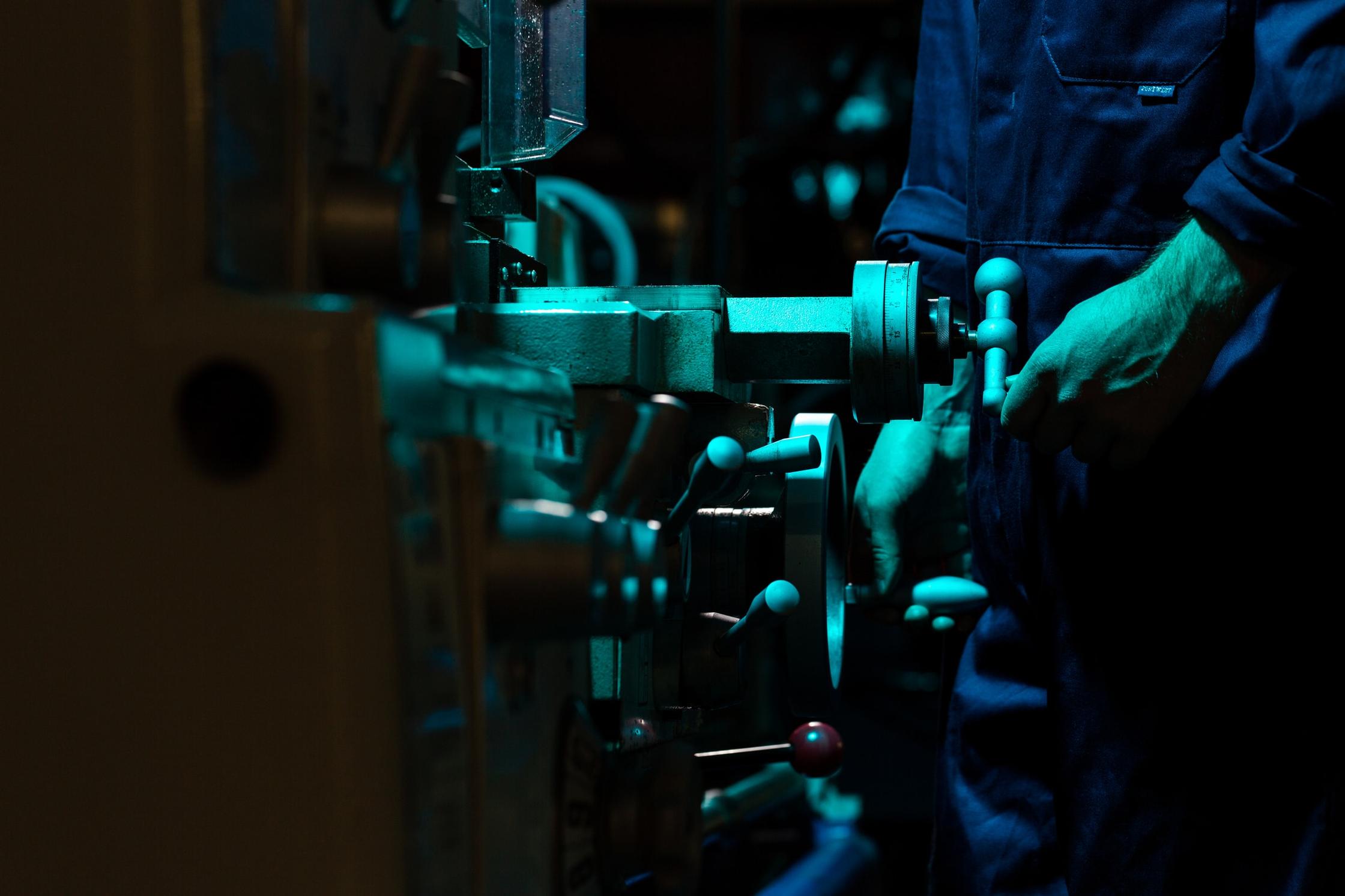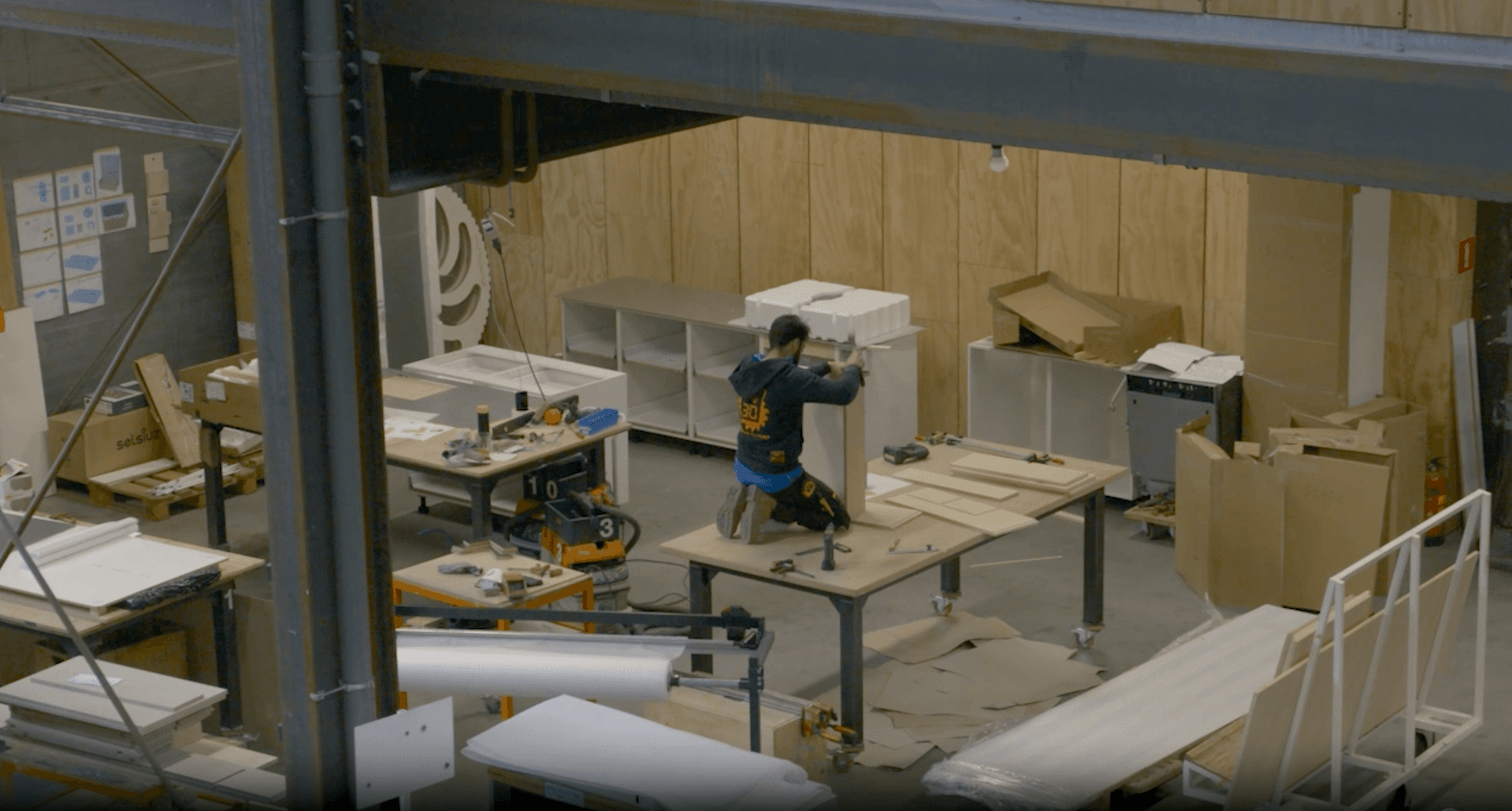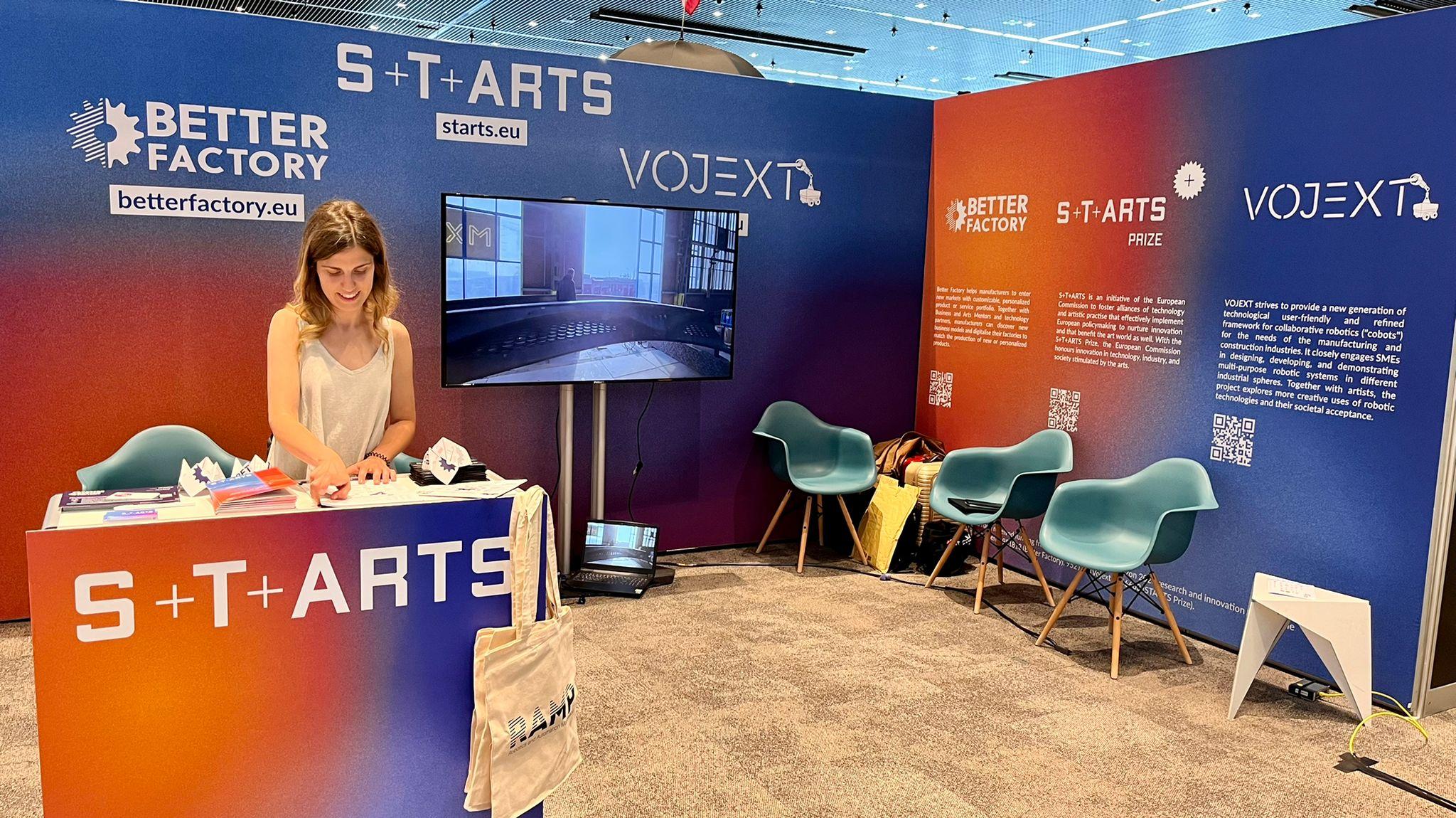Waag is part of the Better Factory project, consisting of partner organisations working together to integrate art and AI into the technology industry. In an open call, manufacturers, suppliers and artists were asked to form teams that together will experiment with creating new, personalised products and innovative services. Each team receives 200.000 euros and is guided by one of the Better Factory partners for 16 months. Let's introduce the seven winning teams from the open call!
Seven teams of manufacturers, artists and technology suppliers will start within the Better Factory programme. During the jury day on September 1st, the Better Factory initiative selected the seven international teams with the best proposals for experiments from the open call. The 200.000 euros that each team receives is intended for the customisation of manufacturers' products and services, and for the digitisation of current production processes. The teams receive support from the Better Factory programme for a period of 16 months.
Better Factory brings together key players in the European technology, art and innovation landscape. The initiative provides a framework to deliver solutions for manufacturing companies to create new and personalized products and innovative services. During this first round, Waag will act as a mentor for four of the seven selected projects. These projects are called: Better CNC Factory, ODC 3D, DSBSF, and MiniRoboFab. Time to introduce the seven winning projects!

The winning teams
The Better CNC Factory team will focus on the reduction of wood waste in CNC production (a computer-controlled production process) by anticipating the waste of sheet material before production. This will be done by developing algorithms for optimisation, and new products in response to the waste material. Jesse Howard - a former artist-in-residence at Waag - will work on developing predictive algorithms that will allow more efficient use of materials.
Team FOLD will develop a modular robot for the production of Stone Paper Innovative Products: paper made from stone. Technology supplier Oviso Robotics will work on developing a flexible and modular robot that can communicate with other equipment. To appeal to new markets, artist Isaac Monté will work on the development of new products with Stone Paper.
Team ZOVOS-EKO produces metal doors. Within this project, they will move their manufacturing process from manual toward semi or fully automated robot fabrication. Technology supplier ROSSUM Integration will implement robotic welding in the production process, and Studio Libertiny will work on prototyping new products within the ZOVOS-EKO portfolio.
How can craftsmanship and artificial intelligence work together to improve energy efficiency, and optimise the fabrication of products? Team ODC 3D will examine this topic, working with products made by large-scale 3D printing with recycled plastic. Artist Gareth Neal will be directly involved in the factory to analyse how imperfections in the product originate. Neal views manufacturing errors as opportunities that can make products more unique and beautiful.

Integrating the benefits of new technology into the traditional process of making: team SMARTHam will explore how to leverage advanced AI to forecast consumption and set up a production control system. In addition, Studio de Wilde will experiment with new packaging and various forms of augmented reality visualization to market the product in a new way, and to improve its traceability in digital form.
Digital Solutions for Better Scales Factory: Team DSBSF will innovate the manufacturing system for fabricating weighing equipment. Technology supplier NO solutions will apply their existing software to the production process of weighing scales. Artist Sara Alvarez will, among other things, focus on sustainable solutions that match the equipment, such as integrating the use of local plastic waste recycling and 3D printing techniques to minimise the production of plastic waste.
MiniRoboFab will take first steps to establish robot-human collaboration in the production process at the Ritherdon factory. Ritherdon specializes in making sheet metal products. Once the first robot cell has been set up, this will be the go-ahead for artist Nicola Ellis to experiment with more elaborate products and sculptures, to arrive at new product designs and features.

About Better Factory
Better Factory aims to help European manufacturers become more competitive in the global market by providing up to 200.000 euros in equity-free funding, to develop and deploy collaborative intra-factory experiments. Manufacturing companies will discover new business models and digitise their factories to match the production of new or personalised products, thanks to the collaboration with artists and technology suppliers, during the lifetime of the Better Factory project and beyond.
The Second Expression of Interest and Open Call round will be launched early 2022 (exact dates are yet to be defined). Participants from all countries from the European Union and H2020 Associated countries are encouraged to apply to the open calls.


